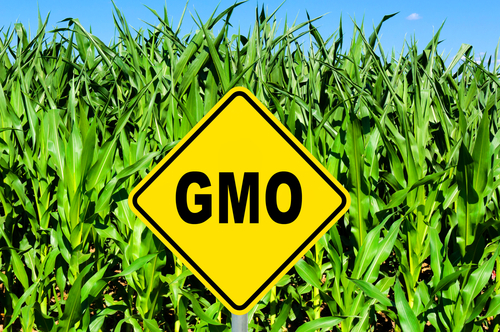Short answer
GMOs are bad for you. They introduce harmful toxins into the food supply which can negatively affect your health.
Long answer
Genetically modified organisms (GMOs) are any organisms that have been brought into a laboratory and had their DNA modified through a process wherein the DNA of one species is extracted and then injected into a different animal or plant, or vice versa. Any organism may be used—viruses, genes, bacteria, plants, or animals (even insects and humans). The purpose of such experiments is to produce organisms that have a higher yield, function better, and are more aesthetically pleasing.
For our food supply, that means scientists are developing plants that are cheaper to produce and are not easy to destroy. For example, a recently developed GMO procedure has invented a mushroom that won’t develop brown spots.
The most famous and hotly contested GMO product is Monsanto’s GMO corn (Monsanto is an agrochemical corporation based in Missouri). Called MON 810, this corn is not affected by the insecticide Roundup so that Roundup can be used without caution and insects can be killed quickly. The result is a crop that is cheap to produce because it is never consumed by pests—and where the “hotly contested” side of GMOs comes in. Not only does this corn come to market with the weed killer Roundup on it, leftover from regular crop dustings, but the nature of GMOs creates a problem for biodiversity and health. European nations like Scotland and Bulgaria have banned MON 810 from being grown in their countries, but this does not indicate that all genetically modified crops are going to be ridden off.
GMOs have been linked to allergic and toxic reactions, dead livestock, and damage to the organs of lab animals. There has been a significant rise in disease, toxins, and an alteration in the DNA of humans (mutations that can pass to future generations), since the rise of GMOs. While genetically modified crops are growing, their seeds can be spread to nearby crops through wind or cross-pollination, contaminating crops that were meant to remain GMO-free. Plus, as these genetically modified crops grow, the weeds and pests that attack them adapt, becoming superweeds and pests.
Most people correlate GMOs with fruits and vegetables. Though they are certainly big culprits in the GMO business, consider that many animals that source us with dairy and meat are fed a diet with GMOs and other additives that you probably would prefer not to know about. Going ‘organic/vegetarian fed/free range’ is always the best way to go with dairy and meat products.
The Food and Drug Administration (FDA) has large investments in the GMO industry—thus the full ramification of these products are often shielded from the public. Private research is regularly shot down, discredited, and mysteriously defunded. However, anyone can see the increase in toxicity and illness around the world, in addition to research from advocacy groups is a stark demonstration of the evil within these foods. For example, after an increase in GMO products in 1996, chronic illnesses relating to food allergies and inflammation rose in the US; disorders affecting the digestive system and reproductive system are currently increasing. The fact that these genetically altered foods can leave material behind in our bodies may be the reason America seems to be having a harder time these days. That said, GMOs are not going anywhere. People in the Agribusiness claim that in order to sustain the population of Earth, these bigger and stronger crops are needed. However, numerous research studies have shown that this is simply not true.
At one time, the Food and Drug (FDA) banned the labeling of GMOs on foods. This was resisted greatly among the public until the FDA changed the policy. Many people try to avoid GMOs by only purchasing products with labels indicating that they are free from GMOs. Similar to organic foods, these foods have been inspected to ensure a lack of GMO ingredients. However, the rule is that these foods must contain less than 1% GMOs. Other people turn to the foods labeled “Non-GMO Project Verified”, though these companies boast of rigorous qualifications to obtain the label, there are numerous loopholes in the qualification process. Many GMOs are processed in the same plants as non-GMO products, opening up the possibility of cross contamination either by human error or intentional deception.
In order for a product to obtain the label “certified organic” it is required to be GMO-free. However, there are many loopholes in the organic labeling process, as well. With increased deception surrounding GMOs, it is nearly impossible to completely avoid them. However, for optimal health, it is best to avoid them, as much as possible. Though loopholes exist in the labeling process—you are much less likely to encounter significant amounts of GMOs in “GMO-free” products than products without the label. Shopping at stores that pride themselves on buying local produce, dairy, and meat, are excellent alternatives to mainstream grocery stores. If you live in a place where you can grow a garden (and have time to maintain it) you can significantly cut down on your exposure via produce. Many communities offer farmer’s markets with produce, dairy, and meat that is locally grown. This is a great option as long as you trust them and feel confident they are growing far away from genetically modified crops.
Possible short-term side effects
- allergies
- nutritional deficiencies
- toxin build-up
Possible long-term side effects
- new diseases
- cancer
- inflammation
- decreased immunity
- digestive problems
- genetic mutations/dna alterations
- reproductive problems
- autism
- allergic and toxic reactions

Benefits
- more efficient farming
- help reduce cost of food
Healthier alternatives
- growing your own produce
- purchasing from a trusted non-gmo farmer/grocery store
 Approved by
Approved by 















